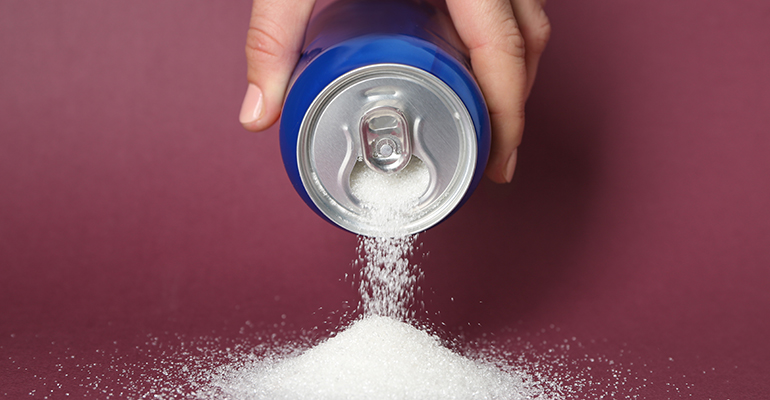News
US sugary drinks tax could be on the cards
17 May 2021A federal excise tax on sugar-sweetened beverages could be on the cards in the US as a Democrat lawmaker announces plans to resurrect the SWEET Act, which proposes a tiered tax.
Democratic representative Rosa L. DeLauro announced earlier this month plans to introduce legislation that proposes an excise tax on sugary drinks.

The bill, dubbed the SWEET Act, would tax sugary drinks up to $.03 per ounce (oz), DeLauro said at the 2021 Sugary Drink Summit, organized by the non-profit Center for Science in the Public Interest (CSPI).
Her bill proposes a tiered tax rate that varies according to the sugar content. Cans or bottles of soda that contain less than 7.5 g of sugar per 12 oz, equivalent to around 340 g, would be exempt. Drinks that contain between 7.5 g and 30 g per 12 oz would be taxed at two cents per ounce while drinks with more than 30 g of sugar per 12 oz would be taxed at three cents per ounce.
A 12-oz can of Coca-Cola sold in the US contains 39 g of sugar. It is estimated the act could generate around $18 billion a year in revenue.
Tax could generate $18bn annually
DeLauro, who is chair of the House Appropriations Committee, first introduced the SWEET Act at the 113th Congress in 2015 and then again in 2018 in the 115th Congress. According to the website GovTrack, which follows the activities of the US Congress, her bill did not receive a vote in 2018 and was therefore cleared from the books. Under US law, a bill must be passed by both the House and Senate in identical form and then be signed by the president to become law.
The text of the SWEET Act (as presented in 2018) says it to reduce the human and economic costs of diabetes, obesity, dental caries, and other diet-related health conditions in priority populations by discouraging excessive consumption of sugar-sweetened beverages by increasing the price of these products and by creating a dedicated revenue source for programs and research.
Over 42% of US adults and 19% of children were obese in 2018, according to official statistics from the Centers for Disease Control and Prevention, which estimates the annual medical cost of obesity in the US in 2008 to have been $147 billion.
President of CSPI Dr Peter G. Lurie said: “Soda and other sugary drinks are marketed as life-affirming elixirs that bring happiness and even health, but the reality is that they promote obesity, heart disease, diabetes, and other health problems. As we’ve seen in the several jurisdictions that have adopted them, soda taxes can make a dent in consumption. And we need a decrease in consumption to reduce the toll of soda-related diseases.”
Forty-five sugar taxes in force around the world
The US already has sugar taxes in force in several cities and jurisdictions, including Boulder, Oakland, Philadelphia, San Francisco, Seattle, and the Navajo Nation, however the SWEET Act seeks to apply a nation-wide levy. To date, across the globe, over 45 countries, cities, and regions have instituted sugar-sweetened beverage (SSB) taxes in order to offset the negative health impacts and fill state coffers.
Public health and nutrition researchers Barry M. Popkin and Shu Wen Ng have created a map of the world showing where sugary drinks taxes now exist.
Popkin and Ng write: “Taxation of sugar-sweetened beverages (SSB) is an important start to using fiscal policy to correct the large human and planetary costs of the modern food supply chain and promote improved diet and eventually health. SSB taxes to date have varied in design, and continued assessments can allow us to better understand how to improve them to sharpen their effects. To date, tax rates are often too low, and the net impact, while important for public health, needs to be increased significantly.”
Popkin and Ng also advocate increasing expanding the taxable products to include unhealthy ultra-processed foods.
